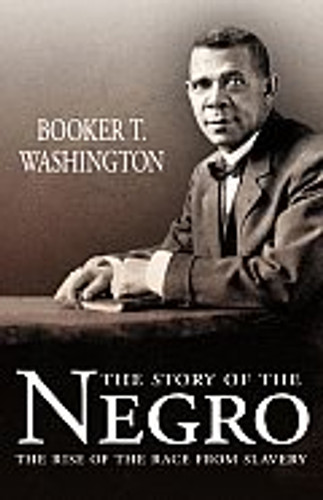Description
This is an account of Africans and Americans of African descent before, during, and after slavery by one of the most important figures in the campaign for racial equality in the United States. Beginning with a description of the African heritage of black Americans, Booker T. Washington goes on to focus on the history of the Atlantic slave trade and how slaves were exploited in North America, before detailing how slavery came to be abolished there and the effect it had on the African American population who found themselves finally free. His description of "The Negro as a Freeman" is particularly important because Washington was himself born a slave, freed at the age of nine, and witnessed this period of American history for himself.
The Story of the Negro is a history of Americans of African descent before and after slavery. Originally produced in two volumes, and published here for the first time in one paperback volume, the first part covers Africa and the history of slavery in the United States while the second part carries the history from the Civil War to the first part of the twentieth century. Booker T. Washington was born into slavery, worked menial jobs in order to acquire an education, and became the most important voice of African American interests beginning in the latter part of the nineteenth century. The Story of the Negro is valuable because it is full of significant information taken from hundreds of obscure sources that would be nearly impossible to assemble today. For instance, Washington discusses the rise of African American comedy with names, places, and dates; elsewhere he traces the growth and spread of African American home ownership and independent business in the United States, and his discussion of slavery is informed by his own life. Washington wanted African Americans to understand and embrace their heritage, not be ashamed of it. He explains, as an example, the role of music in the lives of the slaves and then notes how nearly a generation later, many African Americans were embarrassed by this music and did not want to learn traditional songs. It is just this autobiographical elements that makes the volume compelling. Washington is able to reflect on the first fifty years of his life embracing a range of experiences from share-cropping to dinner at the White House. Washington, with his indefatigable optimism, worked his entire life to achieve equality for African Americans throughpractical means. Founder of the first business association (the National Negro Business League), leader of the Tuskeegee Institute where George Washington Carver conducted research, and supporter of numerous social programs designed to improve the welfare of African Americans, Washington was considered during his lifetime the spokesperson for African Americans by white society, particularly those in positions of power. This led to criticism from within the African American community, most notably from W. E. B. Du Bois, who considered Washington too accommodating to the white majority, but it took Washington's farsightedness to recognize that the immediate concerns of education, employment, and self-reflection were necessary to achieve the ultimate goal of racial equality.
The Story of the Negro is a history of Americans of African descent before and after slavery. Originally produced in two volumes, and published here for the first time in one paperback volume, the first part covers Africa and the history of slavery in the United States while the second part carries the history from the Civil War to the first part of the twentieth century. Booker T. Washington was born into slavery, worked menial jobs in order to acquire an education, and became the most important voice of African American interests beginning in the latter part of the nineteenth century. The Story of the Negro is valuable because it is full of significant information taken from hundreds of obscure sources that would be nearly impossible to assemble today. For instance, Washington discusses the rise of African American comedy with names, places, and dates; elsewhere he traces the growth and spread of African American home ownership and independent business in the United States, and his discussion of slavery is informed by his own life. Washington wanted African Americans to understand and embrace their heritage, not be ashamed of it. He explains, as an example, the role of music in the lives of the slaves and then notes how nearly a generation later, many African Americans were embarrassed by this music and did not want to learn traditional songs. It is just this autobiographical elements that makes the volume compelling. Washington is able to reflect on the first fifty years of his life embracing a range of experiences from share-cropping to dinner at the White House. Washington, with his indefatigable optimism, worked his entire life to achieve equality for African Americans throughpractical means. Founder of the first business association (the National Negro Business League), leader of the Tuskeegee Institute where George Washington Carver conducted research, and supporter of numerous social programs designed to improve the welfare of African Americans, Washington was considered during his lifetime the spokesperson for African Americans by white society, particularly those in positions of power. This led to criticism from within the African American community, most notably from W. E. B. Du Bois, who considered Washington too accommodating to the white majority, but it took Washington's farsightedness to recognize that the immediate concerns of education, employment, and self-reflection were necessary to achieve the ultimate goal of racial equality.

